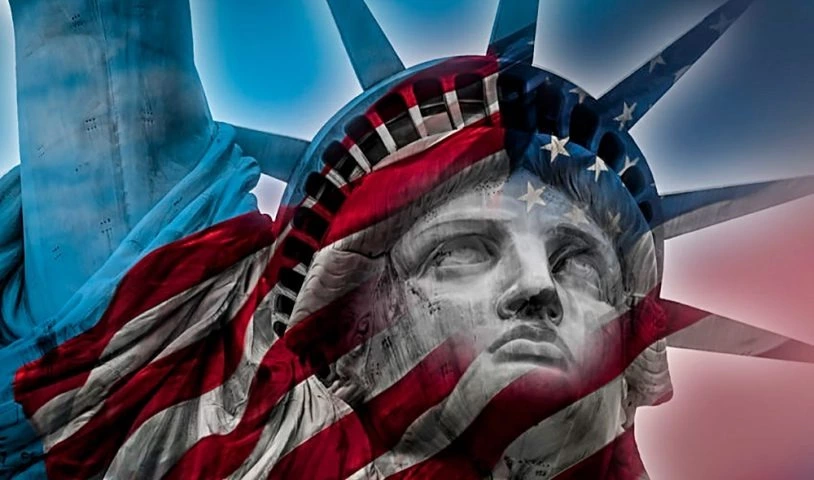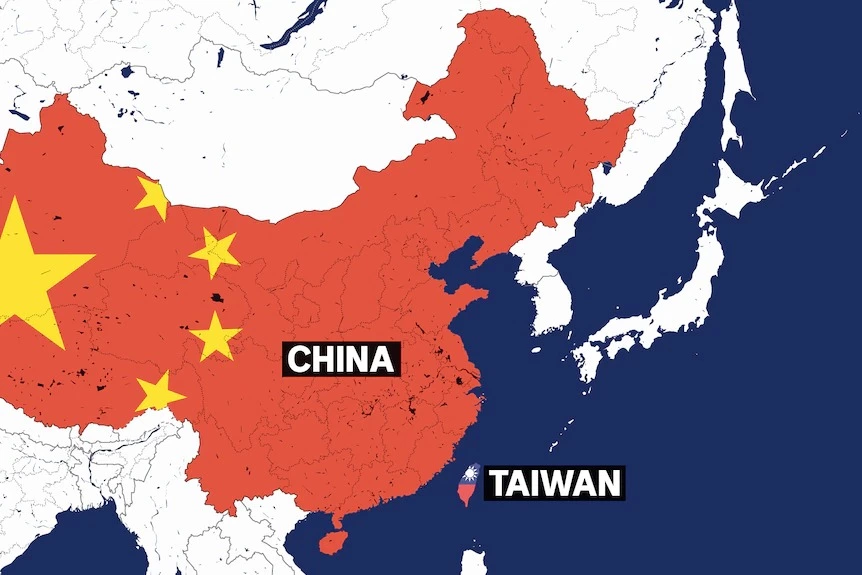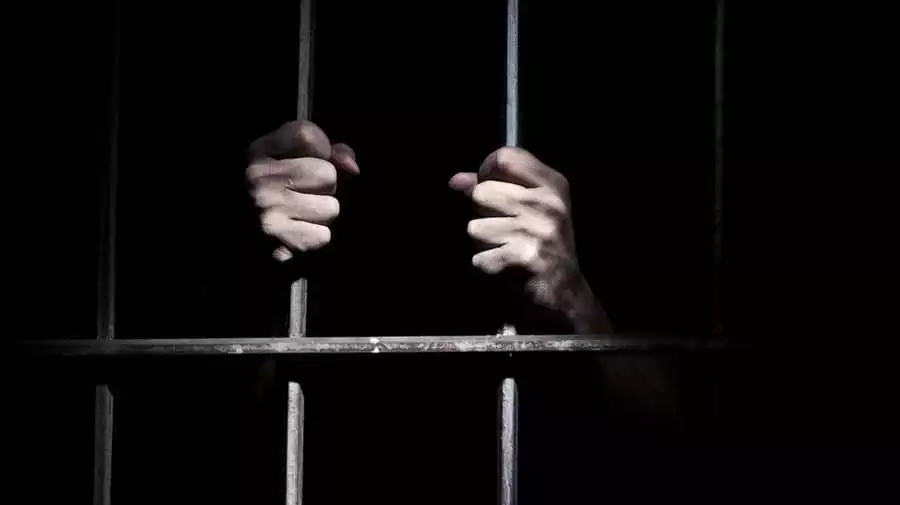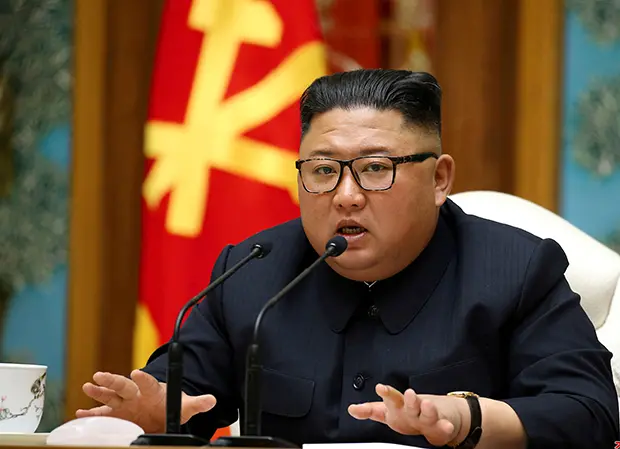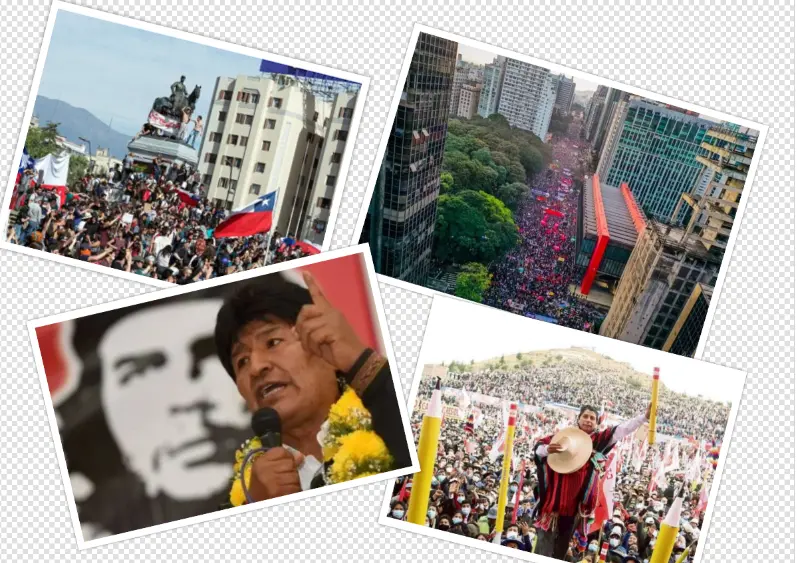The essence of freedom in the political and the personal sense can be found in the fusion of the individual and the State. For the two indecencies, although independent, are dependent on each other for the wellbeing of the whole, and they thus create not an idealized union but a union of necessity. As in a marriage, there are contradictions and disagreements to the point of hostility or even divorce – which, to extend the metaphor, leads to civil war between the two cohabiting forces, one being a physical force of humanity and the other a finite, universal force which constitutes the State.
When the people and the State are in harmony with each other, there is a form of democracy, not in the perfect sense of the word, but there is a joint union of political enlightenment or pragmatism based on the need to be creative in the development of cultural and social circumstances. With these ideas in mind, I would like to pursue further how the nature of Freedom is a part and the whole of this political unity, which also has an essence of universality to it as well.
I do not believe in Hegel’s concept in ELEMENTS OF THE PHILOSOPHY OF RIGHT, according to which the State and the individual’s roles in society, as far as Freedom is concerned, can be understood simply through idealized empirical evidence, that is, as a mystical union of humanity and the State. I agree with Hegel implicitly on the responsibility of the human masses in relation to their obligations to the State, without any of his mystical assumptions that Marx would reveal about Hegel’s mystical or mythical preponderance of the individual and the family union as part of a universal idea that was only grounded upon the State as some kind of abstract idea in a finite logical assumption, and not as an actual physical reality of the forces and movement of history itself:

In truth, Hegel has done nothing but resolve the constitution of the state into the universal, abstract idea of the organism; but in appearance and in his own opinion he has developed the determinate reality out of the universal Idea. He has made the subject of the idea into a product and predicate of the Idea. He does not develop his thought out of what is objective [aus dem Gegenstand], but what is objective in accordance with a ready-made thought which has its origin in the abstract sphere of logic. It is not a question of developing the determinate idea of the political constitution, but of giving the political constitution a relation to the abstract Idea, of classifying it as a member of its (the idea’s) life history. This is an obvious mystification.[1]
In other words, what is important to take generously from Hegel’s great and profound work on the responsibility of the individual, freedom and the state, is that there is between the three undeniable forces of history is a unity that is ongoing throughout human history regardless of wars, social civil wars and periods of peace and human prosperity.
The development of the Will in each human being is a progression that is achieved at different stages of his or her life, and that achievement is rarely understood in the full conscious sense of innate or instinctive identity, especially regarding the Will’s ultimate consciousness of its moral obligations to human society in general. The frailty and fragility of human existence is the continual imbalance between the various peoples throughout the world who are continually divided among themselves and others by the lack of consciousness of what it means to be alive in the responsible and conscious sense of human responsibility. Regarding the individual state of being as Hegel wrote:
The will which free is and for itself, as it is in the abstract concept, is in the determinate condition of immediacy. Accordingly, in contrast with reality, it is its own negative actuality, whose reference to itself is purely abstract – the inherently individual… will of a subject.
However, this beginning of consciousness of the Will, which is none other than the subjective of the ‘I’, is still nothing but an abstract phenomenon, which the majority of those who live in the United States cannot accept, as most live with that concept in an extreme way. Allow me to pursue this overall national character of the Americans further by proceeding to Hegel’s concept of the will and its eventual responsibilities towards human society and the state. Hegel responds to the unravelling of the will and its initial consciousness by stating further: “The complete idea of the will is that condition in which the concept has fully realized itself and which its existence [Dasein] is nothing but the concept’s own development.” In other words, the process of consciousness and existence is only at its initial stage: it is still in its infancy, an abstraction not yet “a totality” of conscious existence, as Hegel reminds us with this stirring remark:
If I say that I am free, ‘I’ is still this being-within-itself [Insichsein] without any opposition. In morality, on the other hand, there is already an opposition; for in this sphere, I am present as individual will, whereas the good is the universal, even though it is within me.
Here we see in the German philosopher, not only the idea of how the ‘I’ consciousness transcends its abstraction of being as simply consciousness among the universe of nothingness, but also how it is elevated to an actual personality in the human sense of the word, and as Hegel would later state in his opening chapter of his work: “Personality contains in general the capacity for right… The commandment of right is therefore: be a person and respect others as persons.” It is this ethical concept of the ‘I’ and consciousness that the majority of Americans refute in their macabre and violent ways of living, which some would say is nothing but the Freedom to do whatever one wishes to do before they perish form existence that is the crux of the matter. What matters for Americans, the majority of them at least, is that the Will has no constraints ultimately for them, and their arrogance, self-absorption and self-aggrandized view of themselves is what has created in them a fascist behavior that has come to fruition in the twenty-first century.
The social madness of the Republic of the United States did not begin in the present modern age, but has its deep-rooted origins in the very inception of the country. As is well known, the Pilgrims and later the Puritans were the outcasts of Europe for the aggressive religious zeal and self-righteous individuals masked by a ‘community of religion’ that was eventually discarded as they began to manifest themselves permanently on the North American continent. The creation of the United States, as the colonies broke decisively from their mother country, England, took on the character of an Anglo-American culture that laid waste to any indigenous peoples that opposed them, all in an individualistic quest for its ‘Manifest Density’, namely the subjection of the world around them; in other words, the ‘I’ of being an American had only a superficial relationship to the world in general. In essence, the Anglo-American people forcibly created a genocidal state, notwithstanding periods of progress in which they reached out to the world in a more progressive manner of human collectivity and ethical responsibility. There are in fact two periods where this kind of Will to the morality or ethical value of national and international community manifested itself and those were in period of the American Civil War with the eradication of physical slavery (but not of labor slavery in the total sense of complete emancipation), and the period of the Second World War, when the United States government and its people fought and often died in the struggle against the fascist governments that had emerged in Europe in the 1920s and 1930s. However, the frontier mentality of individualism and its odd and deadly concept of Freedom never extinguished themselves. As an essay written by three American historians reveals:
According to the classic thesis advanced by F. J. Turner, the presence of a frontier separating established settlements from vast tracts of open land during a formative period shaped the distinctive aspects of American culture. Quoting from his 1893 essay published in Turner (1920), the frontier was “the meeting-point between savagery and civilization,” and “the existence of an area of free land, its continuous recession, and the advance of American settlement westward, explain American Development.” According to his thesis, “these free lands promoted individualism, economic equality, freedom to rise, democracy.” He also observed that, on the frontier, the “tax-gatherer is viewed as a representative of oppression,” since the environment “produces antipathy to control”.[2]
It should be noted that the authors did not see Turner’s insight on the concept of American Fronter individuality as totally complete, and they referenced their long thesis with “frontier locations”, “frontier experience” and “frontier population” which are profoundly important factors, but are not in my view the main criteria for Hegel’s concept of freedom, that is the freedom of the individual and his or her responsibility to the overall collective consciousness of community habitation in a nation-state.
It was the French historian Alexis de Tocqueville who brought forth the concept of the “American Frontier” and how American citizens (not including the Indigenous native Americans or the African American slaves who were not obsessed with the idea of ‘Freedom’ in the Anglo-European sense) advocated for individualism as the voice of the majority in post-revolutionary America. In Tocqueville’s
Democracy in America, there is a not-so-subtle reference to the individualist behavior of the Americans with respect to harnessing state legislatures to meet their own self-centered means, thus leaving the federal government, or state apparatus, to survive by any means possible. Tocqueville thus opened up the cancerous behavior of individualism among Americans when he wrote the following:
It is the very essence of democratic government that the majority has absolute sway, for in a democracy nothing resists the majority. … They recruited [my italics] members of both house from the same class and elected them in the same way… Even as the law strengthened the powers that were naturally strong, it steadily weakened those that naturally weak.
But their quest to assert their individualistic rights, the Americans betrayed the very essence of Freedom that both Hegel and Marx agreed in principle: the idea that the ultimate freedom of the individual is his ethical allegiance to the overall needs of the various communities of a nation-state.
Americans could not reconcile themselves to this universal understanding of the Will as being not only the individual state of the “I” but also being among the consciousness of the state in all its material essence. Tocqueville reveals the root of the American social contradiction, that is the dialectical relationship of the Will of the individual and his or rebellion to an ethical way of life of the state. He wrote about this hubristic American flaw as follows:
The idea that the enlightenment of the majority gives to the Right to govern society came to the United States with its first settlers. This idea, which alone would suffice to create a free people, has by now been incorporated into the nation’s mores, and its influence extends to the least significant of life’s daily routines… If there were a class of citizens in America whom lawmakers were endeavoring to strip of advantages possessed for centuries and to reduce from a lofty position to the status of the multitude, it is likely that the minority would not readily submit to the resulting laws… Hence the majority in the United States enjoys immense actual power together with a power of opinion that is almost as great. And once it has made up its mind about a question, there is nothing that can stop it or even slow it long enough to hear the cries of those whom it crushes in passing. The consequences of this state of affairs are dire and spell danger for the future.
The danger that Tocqueville sensed of individualistic Americans believing that the majority not only have the right rule without question but also having a religious consciousness of privileged dominion, and their consequent beliefs about how individualistic Americans can live as they please, brings to mind the very political constructs of modern fascism that were pioneered in the twentieth century by Italian and German fascist ideology. Americans created a myth of Freedom and individualism by nurturing it through their biblical history of frontier romanticism, and brought it forth by pandering towards those men and women in America who aspire to be the oligarchs, the autocrats, even possibly dictators leading the masses that Tocqueville foresaw becoming a violent and dangerous force when he wrote his seminal work on America and its quest for democracy.
Before I continue my thoughts on the idea of Freedom as espoused by Americans in contrast to Hegel’s conception of the nature of freedom and its rights in relation to individuality and human society, I wish to refer to the Italian Marxist philosopher Domenico Losurdo who inspired my paper. In creating a general perspective of Hegelian thought on Freedom and all its entails within his historical work The Philosophy of Right, Losurdo pointed out that although Hegel was criticized for not understanding “modern freedom” and thus veering into the violent realm of traditional state authoritarianism which led to fascism and Hitler, “Rather, we must return to it carrying with us the rich and plentiful information that emerges from the reconstruction of the political history of interpretations.” To the average reader of Hegel’s complex work The Philosophy of Right may seem unapproachable and without any political link to the modern world, even as the continent of Europe is now on the brink of a regional war which could eventually manifest itself into a Third World War due to the political friction of one country, namely Russia. Russia is threatened by other nations encroaching upon its territorial boundaries, and which has therefore invaded Ukraine, which is a pawn of the United States and NATO and their manipulations that aim to create a military bulwark in Ukraine for the ultimate purpose of destroying Russia and plundering its rich, natural assets that stretch from across the Caucasus Mountains to the Ural Mountains. Russian and Belarusian leaderships have correctly perceived that a lust for hegemony is exemplified by the military actions of the United States, the Baltic states and Poland. There is in this world crisis the very crux of Freedom as defined by the Western powers, and we can see how the manipulation of that term can lead to war, bringing destruction and ruin among all parties. Therefore while a critical view of Hegel and his overview of Freedom and the various rights of human existence, which to many may seem to be esoteric in nature, it is not. What we seek out of Hegel’s thoughts or ideas on Freedom and the Individual is the political nature and responsibility of these forces.

Americans conceive freedom in terms of ownership of property. It is through their ownership of property, whether land, housing, the consumption of foods of various kinds, material goods extending from the personal to the cumulation of money and other forms of assets like commercial stock assets for instance—all these sundry forms of materialism, some of them abstract in nature like financial investments, have meaning to the average American, as their existence defines the American’s world. Even Americans’ most intimate relationships are based on material gain in terms of what they think they can consolidate from a relationship: whether that relationship be a friendship, a love affair or a marriage, it is about the accumulative material value that they seek out with each other. That is not to say that all American citizens have this primal view of freedom and identity, but for millions of Americans it defines them, while others are in the minority, both numerically and in terms of the national minorities who dwell in the United States. The Anglo-American working class vacillate: at times supportive of allies who politically are at the vanguard of the continual struggle in the United States to define freedom in a socialist community experience of being an American, yet at the same time aspiring to be ‘middle class’ with all its dehumanizing behaviors and genocidal attitudes towards others that they, the Anglo-American workers, would rather ignore. They are prone to the excesses of political populism in all its vulgar and reactionary, violent components; it drives them to believe that they are liberators in the just cause of so-called ‘freedoms’ in the United States that never existed in the first place except as myth, programmed and engineered by the powerful ruling elite in America who have always been shrewd and devious in dividing the population and in propagating among the workers the delusional fantasy that they are a free people. Americans are enslaved by a freedom that does not exist: they confuse freedom with what they see as their right to take from others, an individualist behavior that is part of their primitive Will, a consciousness that they are physically alive, nothing else. A case in point: I watched the Winter Olympic Games in the People’s Republic of China, and in observing the majority of American Olympic athletes (not all), I observed the following: I saw the decadence, the commercialism and the crude adulation of the privileged middle and upper middle class American Olympians. American Olympians, from the youngest to the oldest, share one thing in common if they do not get an Olympic medal they think they deserve: they whine or pout, and even if they are successful and win a medal, they are the first to push themselves before the television cameras gloating about their success, for the majority of them lack modesty in their assumption of what freedom means in the realm of competition.
Their place in the world is one of the individualistic Will of the “I” and has very little to do with regard for the human condition. Like their fellow citizens, they stay within a state of non-being, but they never realize it, not even as – like other human beings – they eventually have to confront death, which is likewise related to the realm of the State and individual responsibility. One’s life, as one’s own death, is not property to be sold or contained within the illusionary realm of Olympic glory or any kind of so-called glory for that matter, for actual freedom is the political awareness of the individual being a part of the larger process of community of creativity which is vast and wide within the boundaries of a modern nation-state.
Freedom is not merely a state of being, for it is not a metaphysical realm, but an implicit political daily act of interaction with social forces that are fraught with both creative substance and decay or ruin at the same time. If the individual does have not some mooring or anchor to an idea of freedom within a nation-state or country that upholds the integrity of both the individual and political realm of the state, then anarchy is continuous which ultimately leads to a dictatorship or a nationalistic fascism to contain the human excesses that play out in the demise or implosion of the State in general. Freedom of the individual is complex and full of contradictions, and as the Dutch philosopher Benedict de Spinoza says in “OF THE FOUNDATIONS OF THE STATE”, a chapter in his work “A THEOLOGICAL-POLITICAL TREATISE”:
hence, though men make promises with all the appearances of good faith, and agree that they will keep to their engagement, no one can absolutely rely on another man’s promise unless there is something behind it. Everyone has by nature a right to act deceitfully, and to break his compacts, unless he be restrained by the hope of some greater good, or the fear of some greater evil.
However, Spinoza also warned us that the individual, that is the citizen or citizens that subordinate themselves to the State, expects a rational existence within their community even though they themselves may be prone to irrational behavior at various stages in their lives, and hence the warning: “In a democracy, irrational Commands are still less to be feared… and moreover, the basis and aim of a
democracy is to avoid the desires as irrational, to bring men as far as possible under the control of reason… if this basis be removed then the while fabric falls to ruin.” Hegel and Spinoza agree on the issue of responsibility of the State, although each came from a different position regarding the nature of freedom, the individual and the State. Whereas Hegel would come to justify freedom to access property and the State, Spinoza was a modern pioneer in revealing the nature of the freedom of the individual within a political democratic state, describing when it was the responsibility of the individual to concede to the discipline of subordination to the State and when they had the right to revolt if the State did not conduct its social mandates according to reason and the well-being of the citizenry. In my observations of the American concept of freedom and of the citizen’s relationship to the State, I find that there was neither a consciousness of the Will nor a consciousness of the community for a long period of time, except when it suited American self-interest, and Spinoza’s attitude toward the nature of men and their relationship to democracy is tragically an idea of community allegiance that Americans have never understood except through threats, coercion or individualistic, capitalistic promises of rewards, which leads to the total exploitation of citizens pitted against citizens, something the Americans have mastered well in the latter days of the Republic of the United States, and which has led to an implosion they cannot understand amid their own terror of economic and political annihilation.
But again, it is necessary to remark on how private property contributed mightily to the average American’s overall view of Freedom, which led to what I would characterize as American Stumpfsinn.
To be a slave to the means of labor is to have no freedom. In my observations of the American character in my time, I have noted the majority of Americans to be imbued with a slavishness towards those manners and things in life that are superficial, meaningless and without purpose. They delight in the decadence of their passions, similar to the German people that created the eventual abyss of fascism during the period of the Weimar Republic. Americans in essence are a people of extremes, given to passions of political and religious hysteria, while in their everyday hypocrisy they convince themselves that it is others across the world who start wars, who create war crimes, who degenerate humanity. Thus, they are not only slow and cumbersome in freeing themselves from the slavery of those who own their labor but become in effect a participant colluding as the capitalist masters bridle them like draft horses plowing endless fields.
Americans, if they are ever to be considered in history as sane citizens of the world at large, not simply as a nation-state of predators and profiteers, must come to understand the difference between slavery and an ethical obedience to the State, whether that state be a republic or a socialist nation-state. It was the profound Dutch philosopher Baruch Spinoza who gave this insightful observation about being a slave in the context of one’s supposed individualist liberty and an ethical obedience to the State:
An action done on a command—obedience—does, in some measure take away freedom. But that isn’t what makes the slave. It’s the reason for the action. If the end of the action is not the advantage of the agent himself, but of the person who issues the Command, then the agent is a slave useless to himself. But in a Republic, and a state where the supreme law is the well-being of the whole people, not that of the ruler, someone who obeys the supreme ‘power in everything should not be called a slave, unless to himself, but a subject.
We have seen during the current and preceding American Presidential regimes that liberal submission to the contextual concept of the ‘American citizen’ became nothing but another term for the citizen slave. From the Bush regimes to those of Clinton, Obama and Trump, the American people have submitted to the command of Presidents who issued commands demanding subservience to the continuation of a predatory, capitalist state of being. In essence, the Americans have become the vassals of a nation-state commanded by oligarchs who no longer abide by the creed of the Republic. However, we should also remember that a similar plight destroyed ancient imperial Athens, as well as more modern nation-states.
In this historic period of war in the Ukraine, a regional war in Europe that has the potential to be the harbinger of World War III, Americans have revealed themselves to have an insidious nature regarding their attitudes and behavior at a time of pestilence. I am referring to the Covid-19 plague and the Biden regime encouraging our participation in the war through the diabolical process of giving lethal weapons that could eventually strike into the heart of Russia itself. This is a period in America where the regime gives the command and the civilians of the United States show whether they are free men within the context of a democratic society or in fact slaves towards pestilence and war. It should be recalled that not only have over a million of American citizens have died of pandemic but that hospitalizations and deaths continue to rise as I write this essay. In reference to the thread of Hegel’s concept of Freedom and what that entailed to him in his time, and what it actually entails in our era of history, let me remark about the average American’s obsession with individualistic freedom, their ‘just cause’ is that it is not the community or the Republic that is foremost in their mind, but their immediate needs to gratify their most primitive nature. As a case in point, even when Anglo-Americans deliver themselves to the selfless commitment to vaccinate not only themselves but the national minorities as well, there still persists the ‘freedom’ to hide that community will for social and health equality. As a New York Times reporter wrote on the need or freedom to minimize racism in America:

Why haven’t you heard more about the narrowing of Covid’s racial gaps? I think part of the reason is that many experts and journalists feel uncomfortable highlighting shrinking racial gaps in almost any area. They worry that doing so will somehow minimize the problem of racism and the country’s enduring inequities.[3]
And then to emphasize his observations about censorship of the reality of life in America, he makes this factual statement about the American majority’s hostility towards freedom of the community:
The main culprit is politics. Only about 60 percent of Republican adults are vaccinated, compared with about 75 percent of independents and more than 90 percent of Democrats, according to Kaiser. And Republicans are both disproportionately white and older. Together, these facts help explain why the white death rate has recently been higher than the Asian, Black or Latino rate.
In heavily conservative, white communities, leaders have not done as good a job explaining the vaccine’s benefits — and Covid’s risks — as leaders in Black and Latino communities. Instead, many conservative media figures, politicians, clergy members and others have amplified false or misleading information about the vaccines. Millions of Americans, in turn, have chosen not to receive a lifesaving shot. Some have paid with their lives.
What is assured by the American journalist’s observation of the human condition in America is the harsh and cruel omnipotence of the majority of the people.
The slavery of capitalism engineers the predisposition of those born into the capitalist nation-state to believe that one is free when one accepts one’s economic subjugation and social inequality. Hegel appears to reference this when he states:
If we hold firmly to the view that the human being in and for himself is free, we thereby condemn slavery. But if someone is a slave, his own will is responsible, just as the responsibility lies with the will of a people if that people is subjugated.
Within a human being’s life is that there must be a certainty of consciousness that one is or is not a slave. That consciousness is raised through the political education process within a community, especially that of a nation-state that abides or aspires to see its citizens free within a socialist democratic realm, and nothing else. In America, the educational process of revealing to the American people what is actual freedom and what is freedom of nihilism and anarchy within the American communities at large, is the ultimate historical struggle within this nation-state. As Tocqueville acknowledged in Democracy in America: “If America ever loses its liberty, the fault will surely lie with the omnipotence of the majority, which may drive minorities to despair and force them to resort to physical force. This may lead to anarchy, an anarchy that will come as a consequence of despotism.” The irony of course is that Tocqueville veers to the right in his interpretation of the French Revolution, thus becoming to an extent a critic of it like the English philosopher Burke, criticizing the French revolutionaries for the lack of common sense regarding what freedom should entail in respect to the rights of the French masses in their struggle against the ancien régime. Thus, Tocqueville, with his entrenched assumption of a liberal political alliance, can no longer understand the concept of Freedom in a deeper light, as for instance Hegel and Spinoza were able to achieve. In the struggle for freedom in the individual sense, and the rights of the citizen within the realm of a modern nation-state, it is the continual struggle for the consciousness of freedom that is a quest that is primitive in nature, for a struggle for freedom can be always an exploration of interpretation through the intellectual challenges of Hegelian thought, even with its defective observations about the nature of existence and freedom.
There has never been a definite definition of what is freedom and there may never be in human history a final summation of the term itself. For the very idea of freedom is complex in its uncertainties and possibilities. Thus, in our time, the Western liberal classes or the neo-liberal political powers would like us to see their concept of freedom or even democracy as a staid process of living, as they codify and manipulate the masses in America to be constricted to the concept of freedom and democracy as the pillars of capitalism and all the excess it has to offer. In the case of radicalization or revolution and the discipline of freedom with its own creative possibilities and political and social restrictions, it was Domenico Losurdo who pointed out that “Although Hegel clearly moves away from Jacobinism, he is keenly aware of possible conflicts between freedoms, and therefore he refuses to subscribe to the superficial demonization of Jacobinism promoted by the liberal tradition. If on the one hand, Jacobinism imposes a strict dictatorship, on the other hand it abolishes the feudal relationships of property and labor…” We have before us in America the Hegelian choice to interpret freedom without so-called intellectual restrictions, but as Jean Paul Sartre wrote: “Freedom is what we do with what is done to us.” I am aware that freedom is nothing more than to react with dignity in the way others proceed to react with me. Freedom is no more than the conscious will to live a dignified life.
